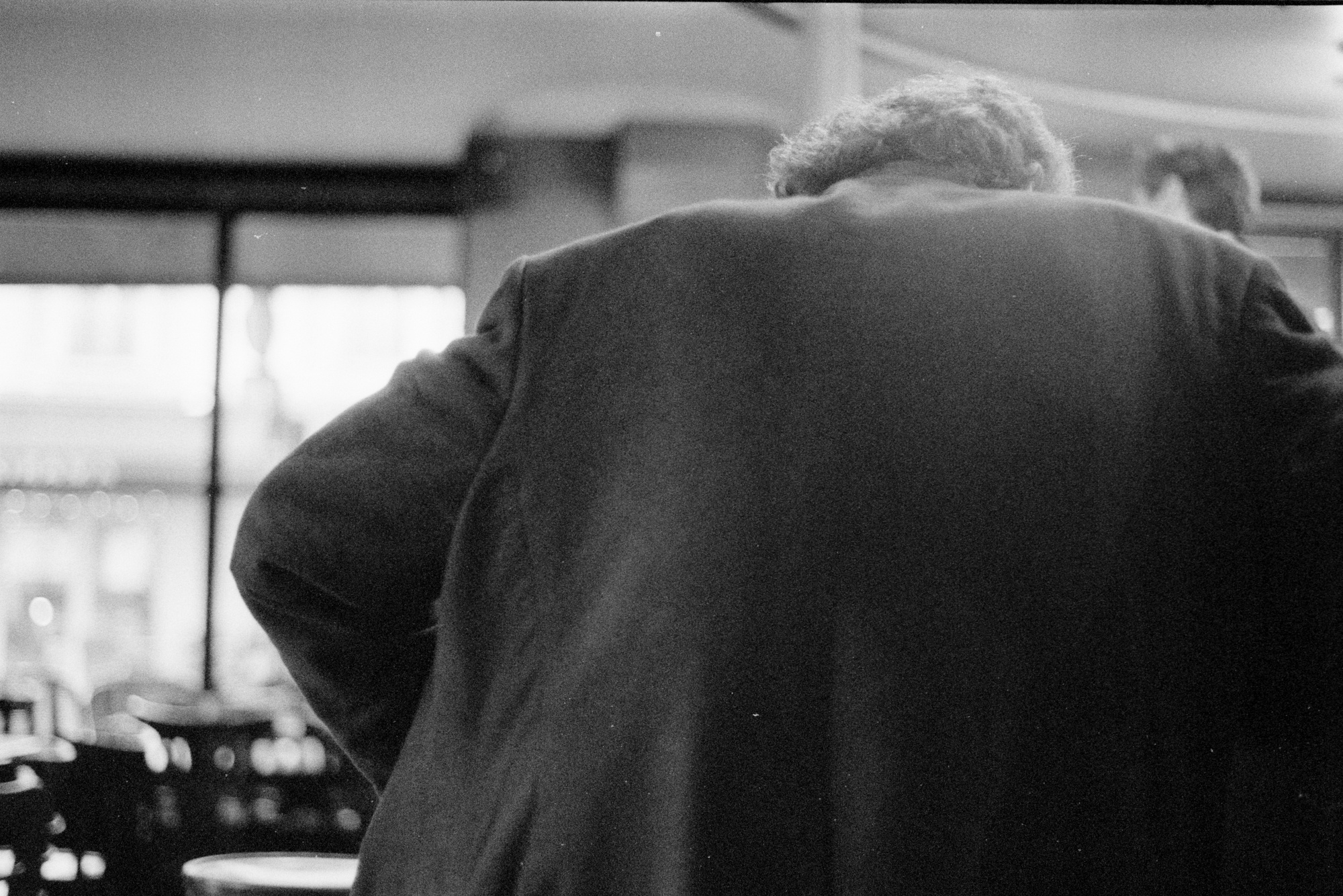For a while I’ve been tormented by the feeling that not enough people are writing about the joys of shooting film. It’s as if nobody got tired of digital and discovered a whole new world of arcana to master, nobody knows how much sexier an already sexy person is when they’re wearing a metal mechanical camera casually on one shoulder as they cavort with their lithesome friends – or, as if people have discovered these things but are selfishly hoarding the pleasures for themselves. Not me. I’m breaking the silence. Internet, prepare yourself.
In this first of a series of posts about the awesomeness of film photography that I’m calling “On Film,” I will explore how shooting film protects (albeit transiently) the photographer from the burden of failing, again and again, to capture the vision he or she reached for in releasing the shutter.
I think there was something here a split second before I took the photo, but maybe not even then. I continued on my merry way, hopeful in the sunshine. The failure was locked away in a latent image.
Now, there’s a related but different element of shooting film that’s already been thoroughly mapped out by those few folks who delve into such things on the web: delaying gratification. The idea is that film photography thwarts the instant gratification underlying the appeal of so many things digital. Digital chimping vs the languorous wait to develop film. Although it’s worth noting that the most commercially successful form of film photography of the millennium has the morpheme “insta” right in it and only makes you wait for a few minutes to see your image, let’s ignore that for the moment. The consensus among film shooters is that delayed gratification is part of the fun, and I agree.
I might have been a little drunk for this one. I probably saw something in the looming mass of the back, and hoped the low angle would lead somewhere fruitful. I didn't notice the other head on the right, and even without that, I wouldn't have caught the thing I was after.
But this understanding of delay elides (in a way that’s very symptomatic of our moment) the fact that film also delays something else: disappointment. I don’t think I’m breaking confessional barriers when I reveal that my own photographs often disappoint me. They not infrequently fail to convey the emotion or thought I intended when I tripped the shutter. With digital, this brutal truth is immediately accessible, and even though I leave instant review turned off I can’t always resist a peek. There, scant seconds after taking the picture, everything still in working memory, I must confront failure. Failure deserves its own time. It should be considered in private, like (and possibly with) a glass of nice whisky. It shouldn’t interfere with the moment of seeing, of experiencing. Film enforces this separation.
There was potential in the situation but it needed something else to bring it together, and in any case it's much too far away.
Of course, there are happy surprises after development. All of life is not pain, no matter what those emo kids say. Gratification, however fleeting, is possible. But in the real world, there is also failure of vision, technical error, and always the slap of fickle chance. To review a roll of film is to discover all of this with our attention whole, not chopped up and ground into the flow of experience like so much sausage. And that is something good about film.


